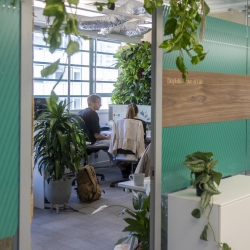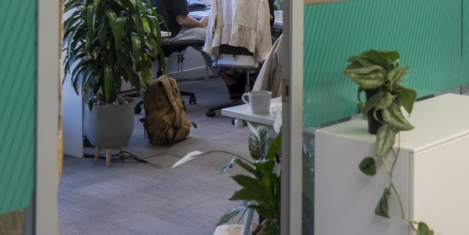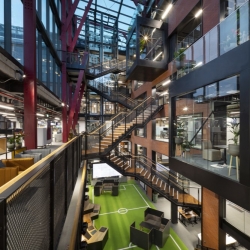To provide the best experiences, we use technologies like cookies to store and/or access device information. Consenting to these technologies will allow us to process data such as browsing behaviour or unique IDs on this site. Not consenting or withdrawing consent, may adversely affect certain features and functions.
The technical storage or access is strictly necessary for the legitimate purpose of enabling the use of a specific service explicitly requested by the subscriber or user, or for the sole purpose of carrying out the transmission of a communication over an electronic communications network.
The technical storage or access is necessary for the legitimate purpose of storing preferences that are not requested by the subscriber or user.
The technical storage or access that is used exclusively for statistical purposes.
The technical storage or access that is used exclusively for anonymous statistical purposes. Without a subpoena, voluntary compliance on the part of your Internet Service Provider, or additional records from a third party, information stored or retrieved for this purpose alone cannot usually be used to identify you.
The technical storage or access is required to create user profiles to send advertising, or to track the user on a website or across several websites for similar marketing purposes.
 A new report, Reap What You Sow: Valuing Workplaces that Grow Good Ideas from PLP Labs sets out to explain the process of measuring and monetising the wellbeing and environmental value of biophilic office design. The report argues that in corporate real estate, the environment impacts the bottom line. PLP’s study – run in collaboration with academics from Loughborough University, the University of Reading, and Benholm claims to enable real estate clients to fairly evaluate the worth of investing in nature alongside other project costs. (more…)
A new report, Reap What You Sow: Valuing Workplaces that Grow Good Ideas from PLP Labs sets out to explain the process of measuring and monetising the wellbeing and environmental value of biophilic office design. The report argues that in corporate real estate, the environment impacts the bottom line. PLP’s study – run in collaboration with academics from Loughborough University, the University of Reading, and Benholm claims to enable real estate clients to fairly evaluate the worth of investing in nature alongside other project costs. (more…)


















 The digital edition of issue 14 of IN Magazine is now available to read free,
The digital edition of issue 14 of IN Magazine is now available to read free, 
















April 7, 2023
The need for reimagination in an age of uncertainty
by Eugenia Anastassiou • Comment, Everything Omni